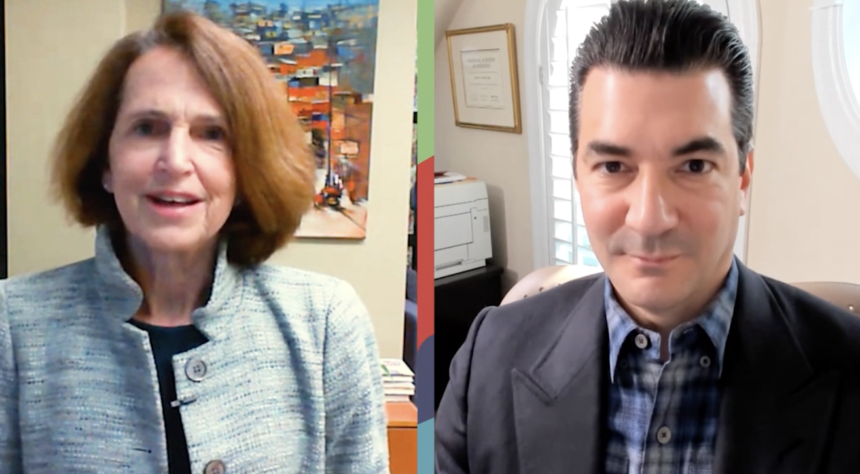
A former leader of the Food and Drug Administration is warning long-term care providers to stay vigilant and proactive as they head into the “seventh inning” of the coronavirus public health crisis.
“We have two hard months ahead of us, maybe three. We’re in sort of the final stages of the acute phase of this pandemic. I liken it to being in sort of the seventh inning of the acute phase of the pandemic. The next couple of months are going to be hard,” former FDA Commissioner Scott Gottlieb said Tuesday.
“My advice to people would be: Don’t let your guard down, continue to be vigilant, and be even more careful because this is probably going to be the most dangerous phase of the pandemic,” he added.
Gottlieb’s comments came during a virtual, one-on-one discussion with LeadingAge President and CEO Katie Smith Sloan at the organization’s annual Meeting & Expo. The two discussed a variety of issues related to long-term care and the ongoing pandemic, including available resources, how providers can prevent further spread of the disease and what a path back to normalcy might look like.
They also addressed the safety of using products, such as COVID-19 tests, that have received Emergency Use Authorization from the FDA. Gottlieb noted that even though products with EUAs have gone through an accelerated process, they’re still subject to intense scrutiny.
“The products that came through the EUA process have undergone pretty rigorous evaluation. There are a lot of products on the market that haven’t gone through the EUA process. I would be more circumspect about those,” he explained.
“I would look for the products that have gone through the EUA process because it sort of guarantees you that there’s been independent oversight and validation of the tests [and] of the data,” he added.
Gottlieb expressed the same message for potential coronavirus vaccines that may soon receive EUAs through his former agency. He also said he doesn’t anticipate it will be a challenge for providers to ensure their workers get immunized once a vaccine is available.
“Once the data is available and people have an opportunity to assess it … I think people are going to be sufficiently motivated to get vaccinated,” Gottlieb said. “People are going to make the informed judgment to get themselves vaccinated, especially people who are medical workers.”




